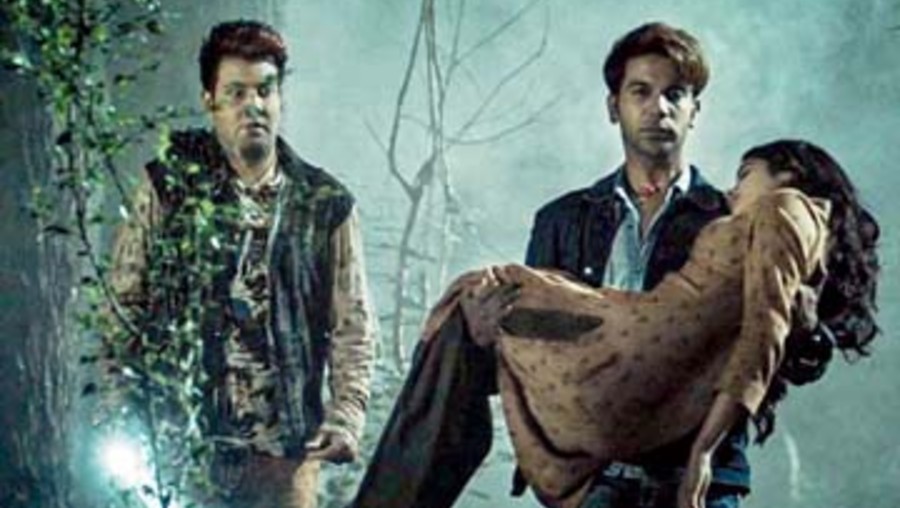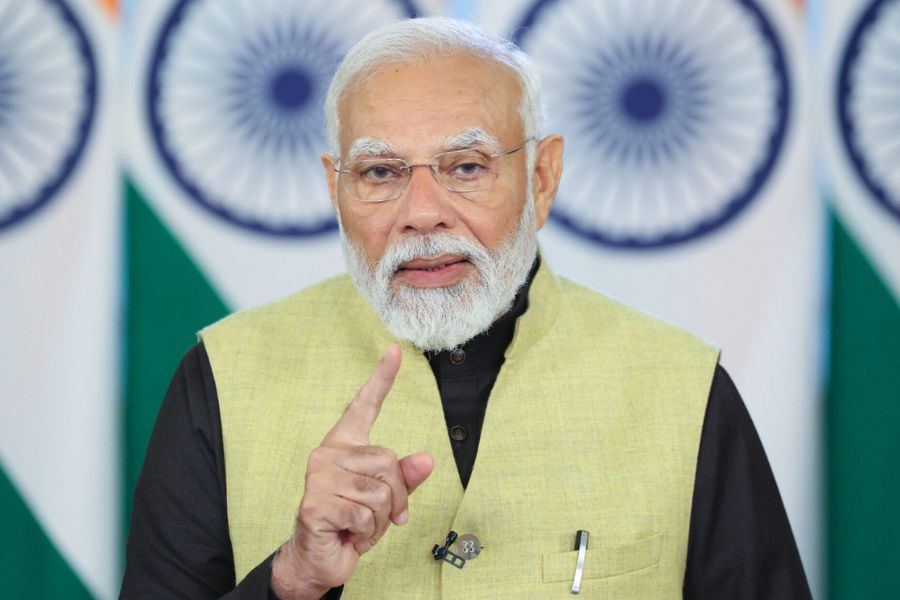Two men vying for the affections of the two halves of a woman is a potential gold mine for some compelling laughs and genuine horror. A woman embracing her dual identities with elan (and eventual elegance) is ripe for a story that makes a statement on the power of she in a world dominated by he. But Roohi is never able to rise above cliche and contrivance to become a watchable and thought-provoking horror feminist tale, something that Bulbbul pulled off effortlessly, and chillingly, a few months ago.
Roohi affords an opportunity to venture into theatres for a Bollywood film of import after exactly a year. The last Hindi film I watched in a theatre was Angrezi Medium on March 13 last year. Much has happened in the interim... the virus is still very much around, the vaccine has just hit the market, Irrfan is long gone.... The excitement of watching a film on the big screen in a dark theatre, as I discovered at 9am on Friday, remains the same. Roohi, however, is not the film that makes the wait worth it.
Roohi is embedded in the same world as Stree, a film that winningly married horror with comedy, subverted many a patriarchal stereotype and galloped into the Rs 100-crore club. The small-town setting (Stree’s Chanderi is Roohi’s Baagadpur) is the same, so is the producer (Dinesh Vijan) and the leading man (Rajkummar Rao). But where Stree scored with its subtlety and smarts, Roohi is too much on-the-nose, starting off with a confusing plot that quickly loses itself in frustrating incoherence.
Stree won points for its originality, but the only mildly interesting bit about Roohi are the names (and the hair colour) of the two men in the middle. Bhawra Pandey (Rajkummar) and Kattani Qureshi (Varun Sharma) claim to be reporters for the local tabloid named Muzirabad Zalzala, but their real job is carrying out ‘pakdai shaadi’, a tradition of sorts in the hinterland where women are kidnapped and married off to the men who take a fancy to them, with or without the bride’s consent. This age-old practice is now a roaring business in the town, with Bhawra and Kattani doubling as bride kidnappers and making a quick buck for their boss Guniya Shakeel (Manav Vij). Things are hunky-dory (or ‘hanky dary’ as Bhawra says in his ‘WaitSapp’-influenced English) till they are tasked with kidnapping Roohi (Janhvi Kapoor, who looks like a million bucks in Nadiyon paar and does well in a role that gives her limited scope) for a potential groom. They do so, keeping her locked up in a cabin in a forest. But before the two know it, demure Roohi transforms into demonic Afza, hanging from the ceiling, speaking gibberish and walking around with her feet turned backwards. Or in Bhawra speak, ‘Chhipkali se godjilli (Godzilla, if you please) bann gayi!’
Complications further arise when Bhawra falls for Roohi and Kattani inexplicably finds himself drawn to Afza. Some laughs happen in the middle, courtesy the chemistry between Rajkummar and Varun and the bizarre ‘love triangle’.
But Half Two, with hocus pocus and half-baked social commentary, endless chatter about chudail and mudiyapairi, descends into a mess. The lack of interesting side players (Pankaj Tripathi, Aparshakti Khurana and Abhishek Banerjee lifted Stree several notches) makes Roohi unidimensional, punctuated with frequent moments of absolute boredom. Director Hardik Mehta — who gave us the genuinely watchable Kaamyaab last year — delivers a semi-wallop of an ending, but it’s too little too late.
What was once novel — women wronged taking refuge in a horrifying alter-ego to challenge patriarchy and seek revenge — is now becoming a worn-out formula in Bollywood. Don’t fix it if it ain’t broke, they say. Roohi simply shows that don’t break it to the point that you can no longer fix it.











